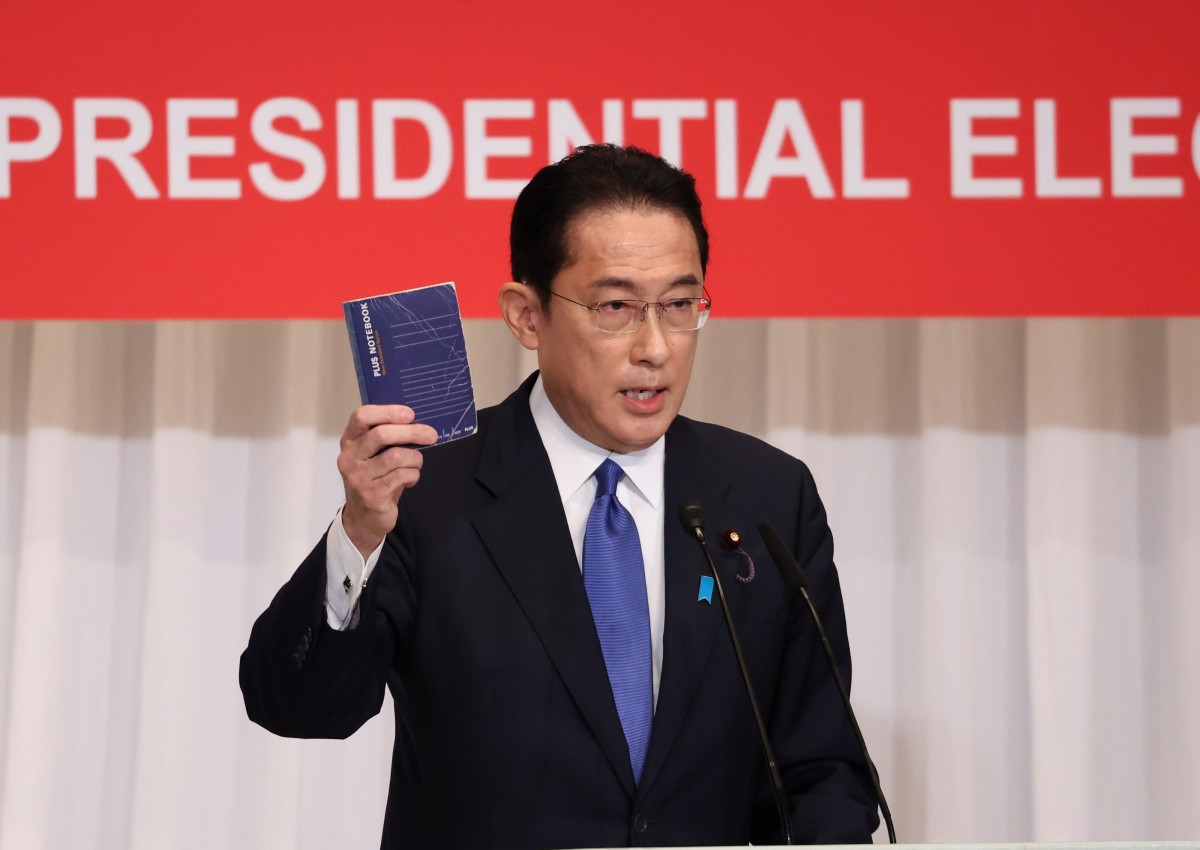New President of Japan's Ruling Party: A 'Grandfather' Lineage, Supports Reform
The new President of Japan's ruling LDP, Fumio Kishida, with extensive political experience, is expected to make many reforms in the coming time.
In the election for the President of the Liberal Democratic Party (LDP) - the ruling party ofJapan, which took place this afternoon (September 29), Mr. Fumio Kishida - former Head of the Policy Research Board won the majority with 257 votes, officially becoming the new President of the LDP. This means that after the "test" in the National Assembly, scheduled to take place in early October, he will officially become the 100th Prime Minister of Japan.

"Noble" lineage and loves baseball
Mr. Fumio Kishida was born on July 29, 1957 in Tokyo. His family is a "noble family" as his father is a member of the House of Representatives, Director General of the Small and Medium Enterprises Bureau. His grandfather was a member of the House of Representatives before and after the war. His brother was the Minister of Economy and Industry of Japan.
During his elementary school years from grade 1 to grade 3, Mr. Kishida studied in New York, USA because his father worked there. In June 1966, he returned to Japan. In 1973, he attended Kaisei High School, having many achievements in baseball. Later, baseball became his favorite sport. This is also the school that Mr. Kishida was attached to. When Mr. Kishida became Minister, more than 500 people established the Kaisei Association to support him. In 1976, he entered the University of Tokyo, then 2 years later he was a law student at Waseda University. After graduating from university, Mr. Kishida became an employee at a bank in Tokyo.
In 1993, he first ran as a candidate for the Liberal Democratic Party in the 40th House of Representatives election and was elected. In 1997, he took office as the LDP Youth Bureau Chief. In 2001, during the Koizumi administration, he served as Vice Minister of Education, Culture, Science and Technology.
In 2015, he was Foreign Minister and in July 2017, he was Defense Minister, then Head of the LDP's Policy Research Committee. In September 2020, he ran for Prime Minister of Japan when Mr. Abe Shinzo resigned due to health reasons. But luck did not smile on him as his vote was much lower than Mr. Suga Yoshidide's.
Mr. Kishida has a calm personality and is not a person who likes to show off in public. In addition, he supports amending the Constitution in a pacifist way. He showed his "ambition" in this race when he quickly announced his election policy right after Mr. Suga announced that he would not run for LDP President.
Mr. Kishida is said to have a healthy and simple lifestyle. He likes to participate in social networks by creating his own website and using Twitter. On this personal page, he posts his views and policies, especially when running for election. A series of policies are posted and receive support from many people, as well as Japanese politicians.
Proposal for a new Japanese form of capitalism
During his election campaign, Mr. Kishida made three commitments and three policies that needed to be implemented. The three commitments were: Fully listening to the people's voices; Creating a society that respects individuality and diversity; Moving towards a sharing society.
The three policies include: Focusing on implementing policies to prevent the Covid-19 pandemic; Building a new Japanese-style capitalism; and Policies to ensure diplomatic security.
Specifically, Mr. Kishida will make efforts to reduce income disparities and support economically vulnerable people such as part-time workers and women.
He also wants to maintain ultra-low interest rates to support the pandemic-hit economy. He said his candidacy was to prove that the LDP "listens to the people, offers a variety of choices and protects Japan's democracy" - a comment that appeared to be a criticism of his predecessor's management style.
Mr. Kishida said he supports an economic stimulus package worth tens of thousands of billions of yen to reduce the negative impact of the pandemic on the economy and hopes that people will cooperate with travel restrictions to reduce the spread of Covid-19.
In foreign policy, Mr. Kishida expressed “deep concern” about China's actions on the diplomatic and economic fronts.
Previously, in 2015, Mr. Kishida reached a landmark agreement with South Korea regarding the end of the dispute over comfort women during World War II. But that agreement collapsed after South Korean President Moon Jae In took office, with the view that the two governments had not fully consulted the victims. However, this has always been persistently raised by the Japanese government at international forums since then, becoming an issue of concern for the people.
With his political experience, Mr. Fumio Kishida is expected to have many reforms in the coming time./.


